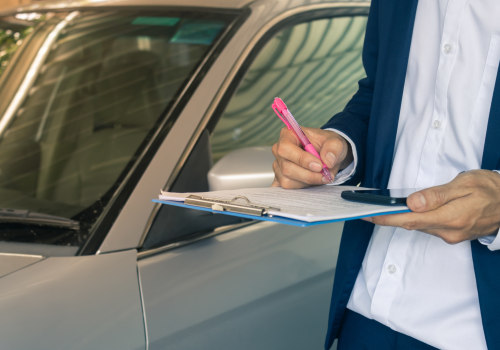By requiring car insurance in almost every state, U.S.
auto insurance
laws help protect people involved in accidents that are not their fault. These laws attempt to ensure that all drivers who may cause an accident have insurance that covers a minimum level of costs for any injury or damage. It's also worth mentioning that the government won't cancel your license suspension until you show proof of insurance coverage, and buying insurance with a suspended license is very expensive.SR-22 insurance, as it's known, can cost between 150% and 400% of a regular policy.
Auto insurance
is a contract between you and the insurance company that protects you against financial loss in the event of an accident or theft. In exchange for you paying a premium, the insurance company agrees to pay your losses as stated in your policy. Nearly all states require drivers to have at least a minimum amount of car insurance coverage.And if you look at each state's minimum requirements, you'll quickly see that the coverage required focuses primarily on liability insurance. Liability coverage is essential because it helps pay for injuries and property damage that you may cause to another person if you're at fault in an accident. Liability coverage can help other drivers recover after an accident and reduce the chance of incurring out-of-pocket costs for an incident they didn't cause. Depending on your state, you may also be required to have additional coverage to offset your medical expenses and those of the passengers in your vehicle.
The two exceptions to state mandates are New Hampshire and Virginia, where car insurance is technically not a requirement. Reviewing your auto insurance quotes page or car insurance statements will help you understand your coverage requirements in your state. Your personal auto policy only covers personal driving, whether you're going to work, running errands, or taking a trip. Familiarizing yourself with your car insurance coverage requirements can help you prepare ahead of time for the types of coverage you'll need when it comes time to set up your insurance policy.
However, some auto insurers now offer supplemental insurance products (at an additional cost) that extend coverage to vehicle owners who provide rideshare services. Beyond legal requirements, an auto insurance policy provides additional financial protection for you and your passengers if you are involved in a car accident. You've probably heard family or friends mention car insurance, and there's no doubt that you've seen ads and advertisements from a multitude of auto insurance companies. So why do we need car insurance? Why do states require it? (And is it worth paying for it in the two states where it's not required?) How does auto insurance protect our home and, yes, even our relationships, and why should we be thrilled to buy it? Basic personal auto insurance is mandatory in most states and provides you with some financial protection in the event of an accident.
And aside from a good story, the entire episode gave me a strange and surprising appreciation for auto insurance. Before you end your auto insurance policy, it's essential that you know both your state's legal requirements and the requirements of your lender or landlord so that you're properly insured. A car insurance policy doesn't make them better drivers, but it does ensure that you're not a victim of their negligence. Personal car insurance also won't cover it if you use your car to transport other people through a ride-sharing service, such as Uber or Lyft.
You may also be required to have coverage coverage to cover the depreciated value of your vehicle if it were totaled in a car accident. .



